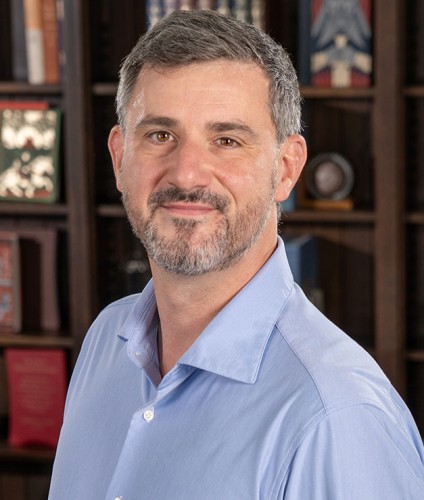
Alex Novikoff joined the Department of History at Kenyon in 2017 after a decade of teaching at liberal arts colleges and research universities in Philadelphia, Memphis, New York City and Switzerland. A specialist in the intellectual and cultural history of medieval Europe, his scholarship focuses on the liberal arts in medieval education and society, and more specifically on the art of debate as it was practiced within and beyond the medieval university. His research also touches on Jewish-Christian-Muslim relations, the medieval Mediterranean and modern medievalism.
Professor Novikoff's classes at Kenyon include the two-semester survey of Medieval Europe, a history of the crusades, and 400-level seminars on medieval Spain and the twelfth-century Renaissance. He also leads a summer class on the history of Italy from the fall of Rome to the rise of the Renaissance in partnership with Franklin University Switzerland and the office of overseas study.
As an instructor, Novikoff stresses the double challenge of understanding the medieval world through its own voice(s) but also as a relevant and in some cases necessary background to various features (laudable and reprehensible) of the modern world. After all, many of our modern rituals and institutions (not least the liberal arts college, complete with cap and gowns, neo-Gothic architecture, and Latin mottos) are rooted in the rich legacy of medieval traditions. But so are some of the recurrent ideologies that seek to stoke the flames of religious hatred, stifle intellectual curiosity, and promote a cultural purity that never existed in the first place. One of the challenges facing medievalists is to recognize that some of the best and worst elements of contemporary life look to the Middle Ages for inspiration.
Alex Novikoff is a native of Greenwich Village, New York City. He is a dual citizen of the United States and France, a classically trained violinist (and member of the Central Ohio Symphony), an elected fellow of the Royal Historical Society of Great Britain and a recent recipient of the Berlin Prize from the American Academy in Berlin. In spring 2019 he was a visiting scholar at the Israel Institute of Advanced Study. He is the author/editor/translator of three books and about a dozen articles and book chapters. He serves as the faculty advisor to the Kenyon Tennis Club and the Kenyon Quizbowl Club.
Areas of Expertise
Medieval history, intellectual and cultural history, interfaith relations, medievalism, historiography
Education
2007 — Doctor of Philosophy from University of Pennsylvania
2003 — Master of Philosophy from University of Cambridge
2000 — Bachelor of Arts from New York University